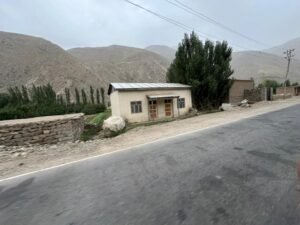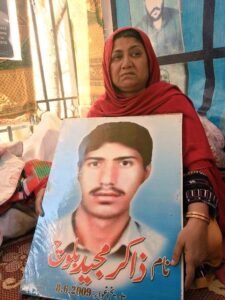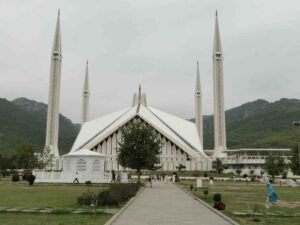Afghanistan Accuses Pakistanis and Tajiks of Fueling Terror Attacks in Afghanistan

Eastern Afghanistan along the Pakistan border. 📸 @private
By A. Shafaq
Mohammad Yaqoob Mujahid, the current leader of the Ministry of National Defense in the Taliban government, recently addressed the media in Kabul, shedding light on the security landscape in Afghanistan. He highlighted that Pakistani and Tajik nationals were involved in various attacks within Afghanistan since the Taliban assumed control.
Mujahid though refrained from directly implicating the respective governments but emphasized the involvement of foreign citizens, particularly Tajik and Pakistani nationals, in attacks on mosques, religious scholars, and public gatherings. The counter-terrorism operations by Afghan security forces have resulted in the death of around 20 Pakistani nationals and 12 Tajik nationals, with many from both countries captured alive in Afghanistan.
Mujahid urged Pakistan and Tajikistan to take preventive measures against the infiltration of such militants into Afghanistan. The Acting Minister of Defense reiterated the commitment to Afghanistan’s security, citing the Doha Agreement as the basis for not allowing Afghan territory to be exploited against any other nation.
Responding to claims by the Pakistani government that the Tehreek-e-Taliban Pakistan (TTP) maintains safe havens in Afghanistan, Mujahid categorically denied these allegations. He dismissed the accusations as baseless and urged Pakistan to provide substantiated answers for making such claims. He highlighted that TTP itself has stated that they have strong support and presence in Pakistan, their militants are in Pakistan, and they do not need shelters in other countries.
This issue has put the relations between the Taliban government and Pakistan under severe strain, though there have been efforts from both sides to solve the problems. Despite diplomatic efforts to address the strained relations, the situation continues to deteriorate.
In an attempt to ease the tensions, Mullah Fazl-ul-Rehman, the leader of Pakistan’s Jamiat Ulema-e-Islam Party, visited Kabul at the behest of the Pakistani Army. During the visit, he met with Supreme Leader Hibatullah Akhundzada to explore avenues for restarting negotiations with the TTP. However, Afghanistan remains cautious about acting as an intermediary, fearing potential blame from Pakistan in case of any setbacks. The trust deficit between the Afghan Taliban leaders and the Pakistani Army has widened, prompting both sides to explore alternative options.
Afghanistan is actively diversifying its interactions with other regional governments to reduce dependence on Pakistan, while the Pakistani Army is reportedly considering cross-border attacks into Afghanistan, citing the pretext of targeting TTP camps. This escalation underscores the growing complexities in the region, as efforts for productive engagement between the Afghan Taliban and the Pakistani Army face significant challenges.
A. Shafaq (pseudonym) is a researcher and lecturer at one of the private universities in Kabul.
Note: The contents of the article are of sole responsibility of the author. Afghan Diaspora Network will not be responsible for any inaccurate or incorrect statement in the articles.











